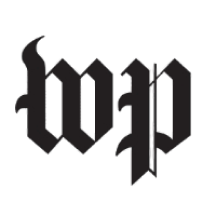
By Michael Erman
ATLANTA (Reuters) -U.S. Health Secretary Robert F. Kennedy Jr.'s hand-picked vaccine advisors to the CDC are set to hold a meeting on Thursday and Friday that could set out a new path for the country's vaccination policy.
Kennedy, a long-time anti-vaccine activist, fired all 17 members of the CDC's Advisory Committee on Immunization Practices earlier this year and created a smaller panel that now has 12 new members.
The vaccine advisory committee is expected to review guidance and vote on recommendations on shots for hepatitis B, measles-mumps-rubella-varicella on Thursday and COVID-19 on Friday.
PANEL EXAMINES RISK OF COMBINED MMR-VARICELLA SHOT
The committee is chaired by Martin Kulldorff, a biostatistician and epidemiologist who publicly criticized COVID-19 lockdowns and was fired from Harvard for refusing to take a COVID-19 vaccine. In June, he said that the panel would study the use of a combined measles-mumps-rubella-varicella shot.
That combined shot has been linked to a higher risk of seizures in children under 4 years old than those who received separate measles-mumps-rubella and varicella shots.
The CDC already recommends that separate MMR and varicella vaccines be given under age 4 unless parents express a preference for the combined shot.
NEWBORN HEPATITIS B VACCINE UNDER REVIEW
The committee is also expected to discuss and - perhaps vote on - the current recommendation to administer a dose of the hepatitis B vaccine to newborns. A former CDC official told the Senate on Wednesday that a Kennedy associate had suggested the committee delay the first hepatitis B dose to age 4.
Hepatitis B is a viral disease that can lead to liver cancer, cirrhosis or death.
"Unless the mother is hepatitis B positive, an argument could be made to delay the vaccine for this infection, which is primarily spread by sexual activity and intravenous drug use," he said.
But many doctors, including physician and Republican Senator Bill Cassidy, have argued that it is a key vaccine for babies.
"The U.S. didn't make much progress in combating hepatitis B until they moved to the birth dose," said Noel Brewer, one of the fired committee members. "They had tried risk based vaccination, and it didn't really work very well... people who are high risk rarely think of themselves that way."
VACCINE POLICY CLASH LEADS TO CDC UPHEAVAL
The meeting comes after the firing of CDC head Susan Monarez, who clashed with Kennedy over vaccine policy, says she was asked to rubber-stamp recommendations from the reconstituted committee.
The upheaval at the CDC also triggered the resignation of several senior CDC officials, citing concerns that policy decisions were being predetermined before scientific review.
On Wednesday, she said during a Senate committee hearing that Kennedy had told her that the vaccine schedule would change in September.
Dr. Jesse Goodman, former chief scientist at the FDA, said he was particularly concerned about the decision on the hepatitis B vaccine, for which he said there has not been any new evidence of harm.
"This is a watershed moment where, if the forces of rumor and innuendo overcome the real data and information, we could be headed for big troubles," Goodman said. "You don't want your kids, or someone you love, to have an incurable infection that, particularly if you get it in childhood, can lead to cirrhosis and liver cancer and liver transplantation."
(Reporting by Michael Erman, additional reporting by Sriparna Roy in Bengaluru; Editing by Caroline Humer and Lisa Shumaker)

 Reuters US Top
Reuters US Top
 Post Register
Post Register WFAA
WFAA Associated Press Elections
Associated Press Elections AlterNet
AlterNet Local News in D.C.
Local News in D.C. The Washington Post
The Washington Post New York Post
New York Post WFIN News
WFIN News Reuters US Domestic
Reuters US Domestic TODAY Health
TODAY Health